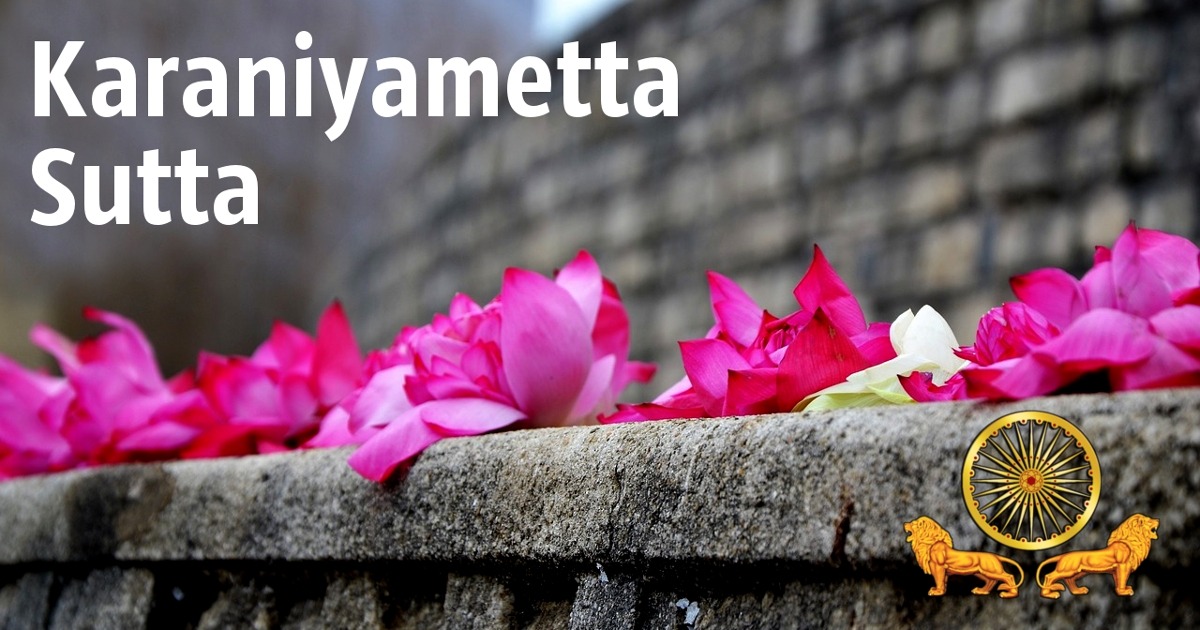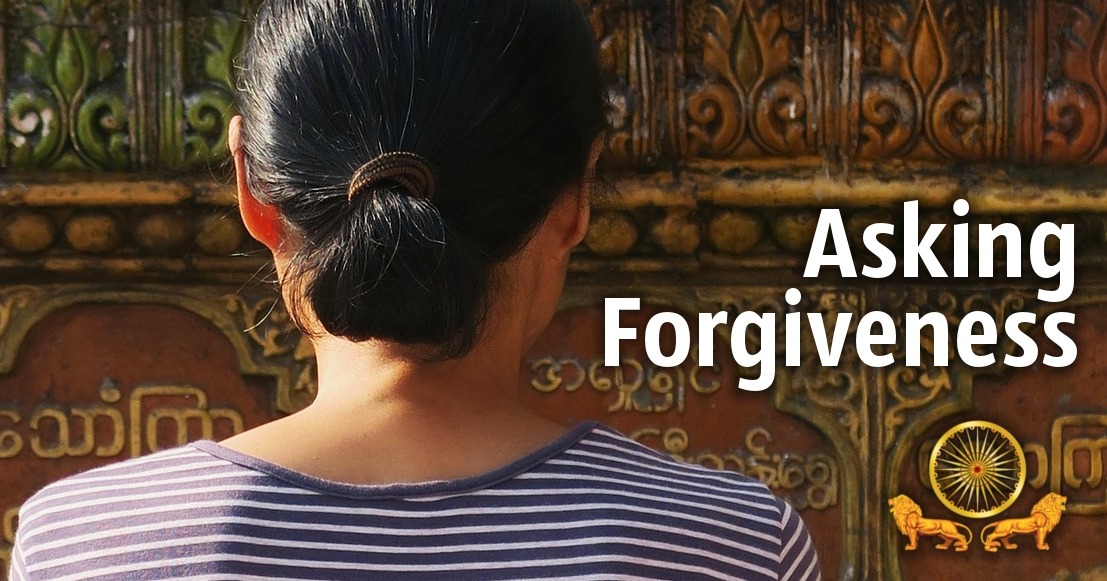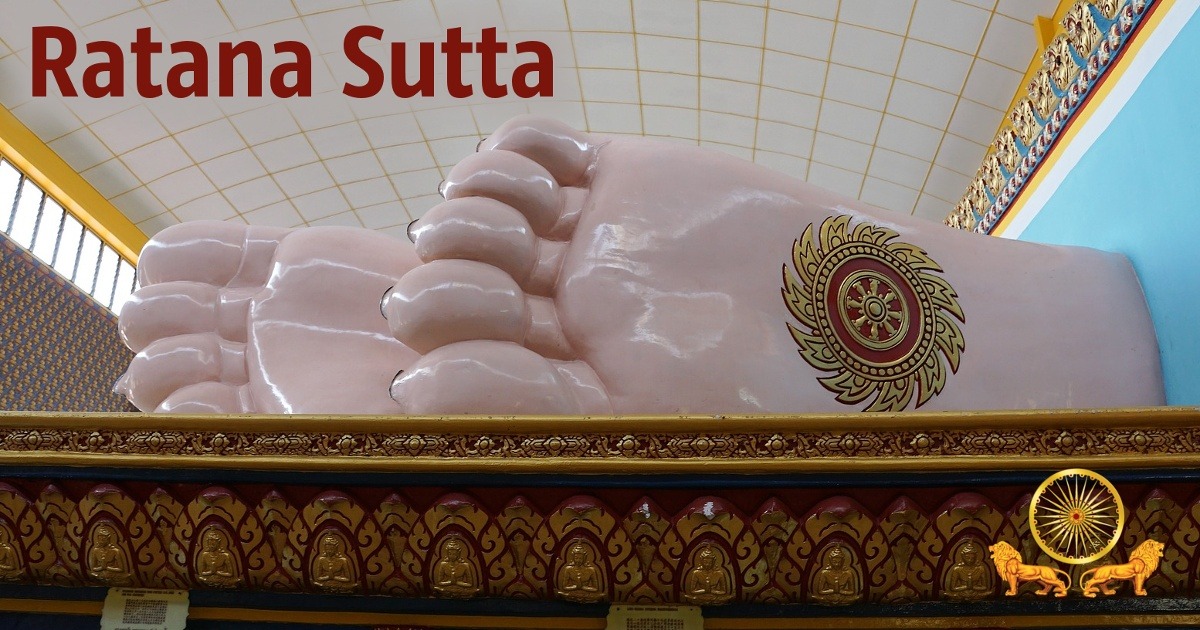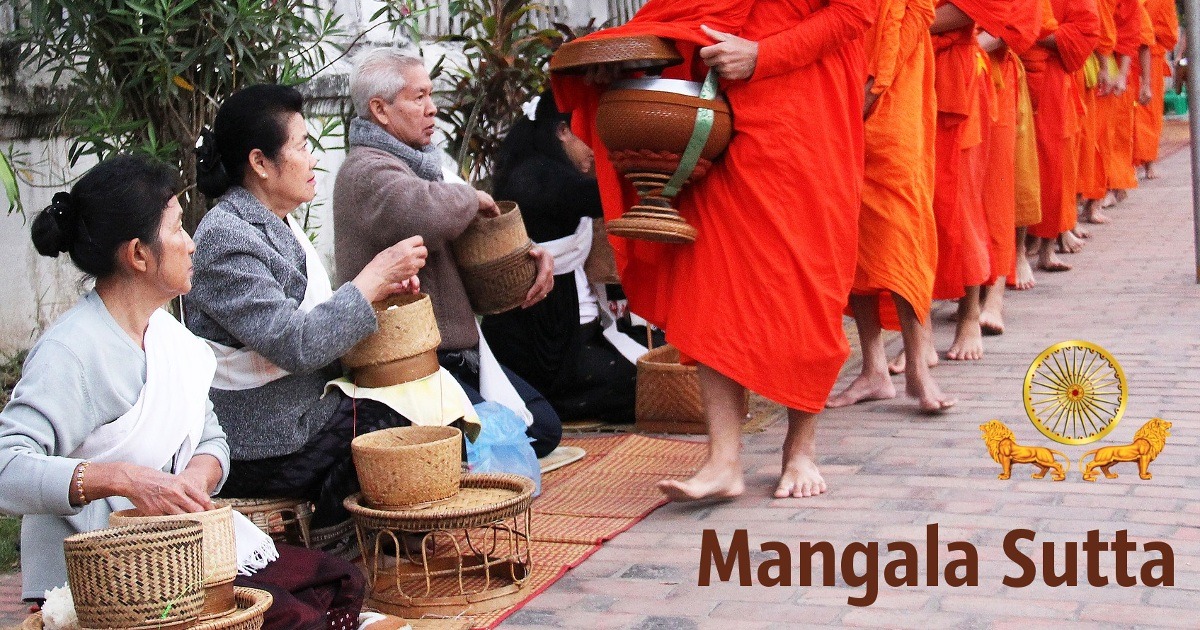The Karaniyametta Sutta: Loving-Kindness, or simply the Metta Sutta, is one of the most complete set of instructions on how to use the practice of loving-kindness to reach enlightenment. Importantly, it also includes the conditions that help one to practice loving-kindness. It can be found in the collection of sermons of the Buddha called the Sutta Nipata, in the Sutta Pitaka. You will often hear this chanted if you visit one of our monasteries for the evening chanting.
To learn more about this type of meditation, check out the chapter in Meditations to Soothe the Mind on the Four Divine Dwellings.
10. Karanīya Metta Suttaṁ: Discourse on Loving Kindness
1. Karaṇīyamatthakusalena – Yaṁ taṁ santaṁ padaṁ abhisamecca
Sakko ujū ca sūjū ca – Suvaco cassa mudu anatimānī
One skilled in good wishing to attain that state of peace Nibbāna should act thus: he should be clever upright, exceedingly upright, obedient, gentle and humble.
2. Santussako ca subharo ca – Appakicco ca sallahukavutti
Santindriyo ca nipako ca – Appagabbho kulesu ananugiddho
He should be content, easy to support, with few duties, living lightly, controlled in senses, discerning, courteous and unattached to families.
3. Na ca khuddhaṁ samācare kiñci – Yena viññū pare upavadeyyuṁ
Sukhino vā khemino hontu – Sabbe sattā bhavantu sukhitattā
One should not do any slight wrong which the wise might censure. May all beings be happy and secure! May all beings have happy minds!
4. Ye keci pāṇabhūtatthī – Tasā vā thāvarā vā anavasesā
Dīghā vā ye mahantā vā – Majjhimā rassakāṇukathūlā
Whatever living beings there may be without exception: timid or fearless; long or large, medium, short, subtle or gross,
5. Diṭṭhā vā yeva addiṭṭhā – Ye ca dūre vasanti avidūre
Bhūtā vā sambhavesī vā – Sabbe sattā bhavantu sukhitattā
Visible or invisible, living near or far, born or coming to birth, may all beings have happy minds!
6. Na paro paraṁ nikubbetha – Nātimaññetha katthaci naṁ kanci
Byārosanā paṭighasaññā – Nāññamaññassa dukkhamiccheyya
Let no one deceive another, nor despise anyone anywhere. Neither from anger nor ill will should anyone wish harm to another.
7. Mātā yathā niyaṁ puttaṁ – Āyusā ekaputtamanurakkhe
Evam’pi sabbabhūtesu – Mānasaṁ bhāvaye aparimāṇaṁ
As a mother would risk her own life to protect her only child, even so towards all living beings, one should cultivate boundless loving-kindness.
8. Mettaṁ ca sabba lokasmiṁ – Mānasaṁ bhāvaye aparimāṇaṁ
Uddhaṁ adho ca tiriyañca – Asaṁbādhaṁ averaṁ asapattaṁ
One should cultivate for all the world a heart of boundless loving-kindness, above, below, and all around, unobstructed, without hatred or resentment.
9. Tiṭṭhaṁ caraṁ nisinno vā – Sayāno vā yāvata’ssa vigatamiddho
Etaṁ satiṁ adhiṭṭheyya – Brahmametaṁ vihāraṁ idhamāhu
Whether standing, walking or sitting, lying down or whenever awake, one should develop this mindfulness. This is called “divinely dwelling here.”
10. Diṭṭhiṁ ca anupagamma sīlavā – Dassanena sampanno
Kāmesu vineyya gedhaṁ – Na hi jātu gabbhaseyyaṁ punaretī’ti.
Not falling into wrong views, but virtuous and possessing right view, removing desire for sensual pleasures, one comes never again to birth in the womb.
Etena saccena suvatthi hotu!
By this truth, may there be well-being!









Thank you so much